Posted: 16/12/21
History remembered and honoured by students
More than 1,300 students from West Nottinghamshire College have been learning about one of the world’s most harrowing events in modern history and paid tribute to its millions of victims.
-
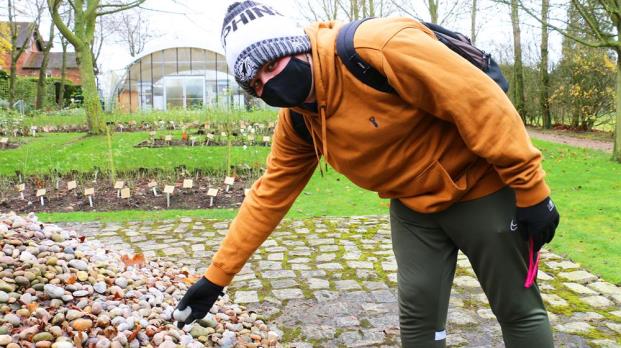
Student Ryan Polglase placed his stone on the children's memorial
-
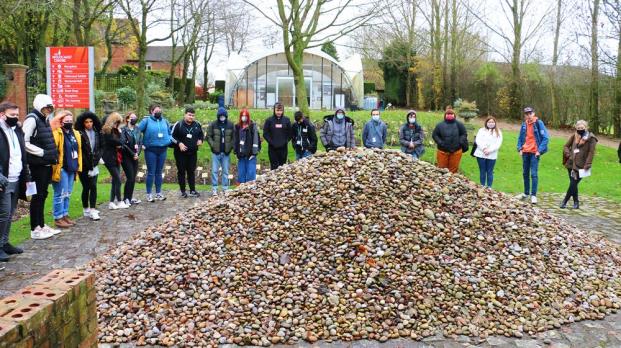
Creative arts students gathered around the stones dedicated to children of the Holocaust
-
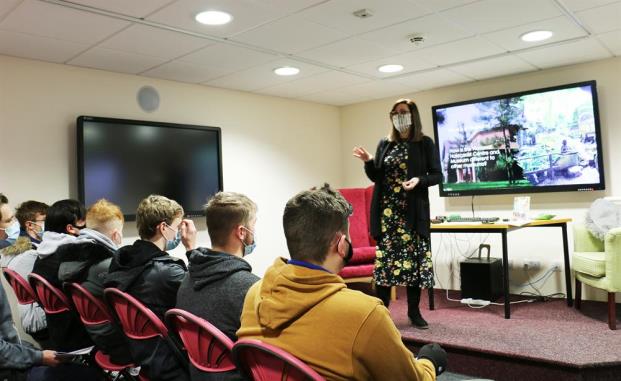
Students were given the background history of the Holocaust throughout World War 2
-
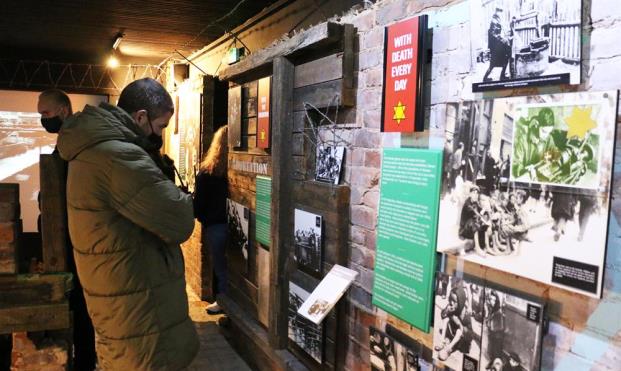
Staff and students learnt about the Holocaust through the walk through displays
-
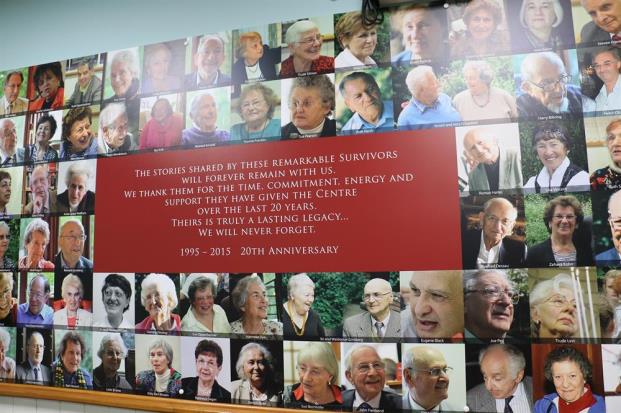
The Holocaust Centre has welcomed many survivors who have told their stories over the years
-
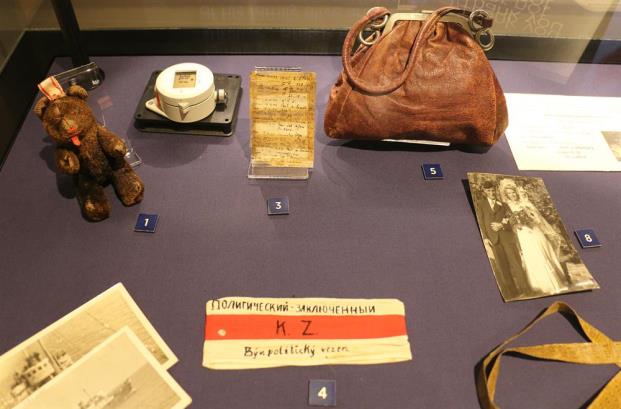
Just some of the many artefacts donated by survivors and their families
-
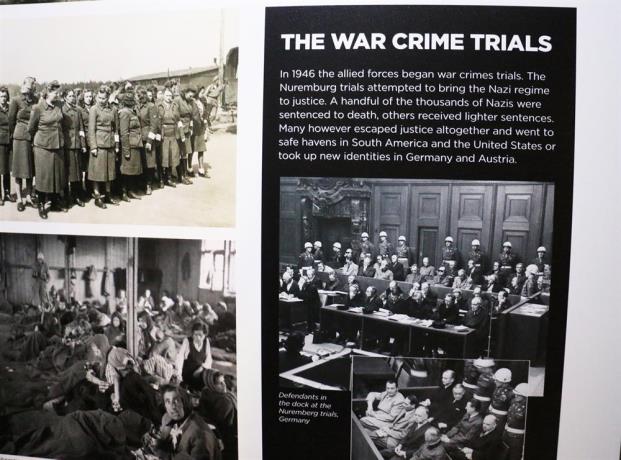
A display which explained the Nuremberg trials which began after the second world war
-
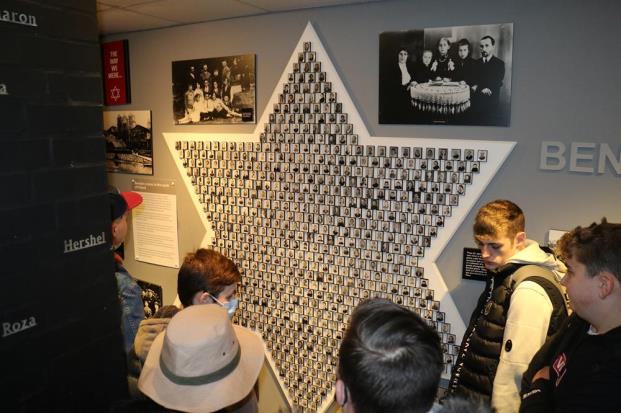
There were many images of individuals who lived through and died by the Holocaust in the museum
-
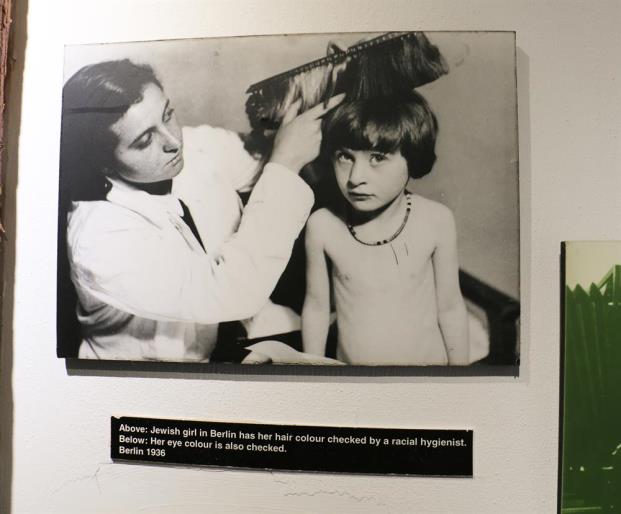
Jewish people were cruelly treated during this tyrannical period of time
-
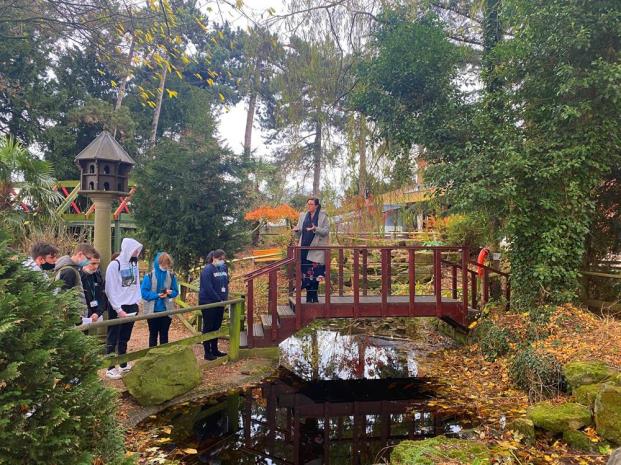
Computer science students explored the peaceful memorial gardens
-
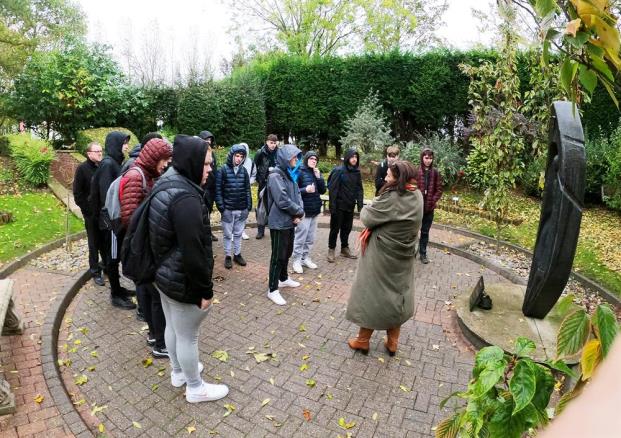
Construction students in the memorial garden with one of the centre's educators
-
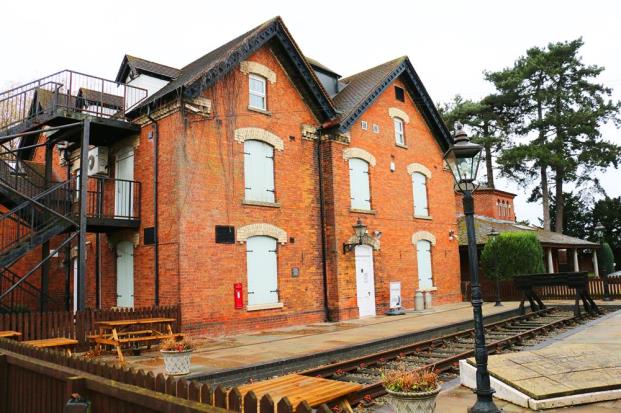
The main building which houses the museum
Throughout November and December, students from all curriculum areas visited ‘Beth Shalom’, the National Holocaust Centre and Museum in Laxton, as a part of their tutorial programme.
Groups of students were given an introduction to the centre where staff educators outlined what the how the Holocaust came about, the rise of the Nazi regime and how many people suffered. Students were able to improve their understanding of the importance of British values such as democracy, tolerance of all others and freedom of speech.
They learnt about the types of persecution endured under Nazi German regime which ultimately led to around six million European Jews and many other oppressed groups, such as the disabled, dying in the barbaric concentration and forced labour camps.
Students listened to video biographies of survivors of the Holocaust, who were just children when the atrocities took place; some of whom still regularly visit the centre and give talks about their lives and experiences.
Tours of the museum enabled students to get a visual and audio experience of what life was like throughout the Holocaust through photographs, first-person accounts, videos and artefacts that have been donated to the centre by survivors and families of the survivors.
The story of how some children survived during this time period were explored by students, as well as understanding how around 1.5 million children were murdered. Many children who survived were hidden during the war, while some were moved abroad on ‘Kinder transport’ and resettled with new families in their new countries.
Students furthered their knowledge and understanding relating to the holocaust as they toured the centre’s memorial gardens which feature a rose garden where families pay tribute to loved ones, as well as a very poignant children’s memorial that evokes the stark reminder of how many children suffered as a result of the Nazi regime. The children’s memorial honours the many young people murdered in the Holocaust. Visitors are invited to select a stone from the trough and place it on the memorial, in tribute to one of the 1.5 million individual children who died.
Students took the opportunity to choose a stone and reflect on the lives of these many children and placed their contribution on the growing pile of memory stones.
Level 3 TV and film student Ryan Polglase, 18, said: “I’ve really benefited from this visit and the exhibition was very informative, I now understand far more about how the Jewish people had to hide and endured the ghettos”.
“To discover just how many people were killed in this was astonishing. I’ve seen a documentary before about concentration camps, but seeing this at the museum really hits you hard.”
Oliver Hunt, a student on the Advanced Extended Diploma in Civil Engineering, said: “Through this visit I learned that people of Jewish faith weren’t the only ones to be persecuted during the holocaust. There were many minorities who were wrongly killed due to their beliefs and life choices, which shows the cruel, idealistic views of the Nazi regime.”
Matt Vaughan, vice principal - curriculum and quality, highlighted the impact of such visits. He said: “Young people who study at West Notts College have been studying about the importance of British values and the dangers of extremism. The visits by around 1,300 of them to such an important education and memorial centre has undoubtedly helped them acquire new knowledge and grow in understanding of the dangers of intolerance and importance of our British values.
“Future students will always conduct visits to the National Holocaust Centre as it really brings to life the stark realities of what happens when people stop treating each other with respect and tolerance.”